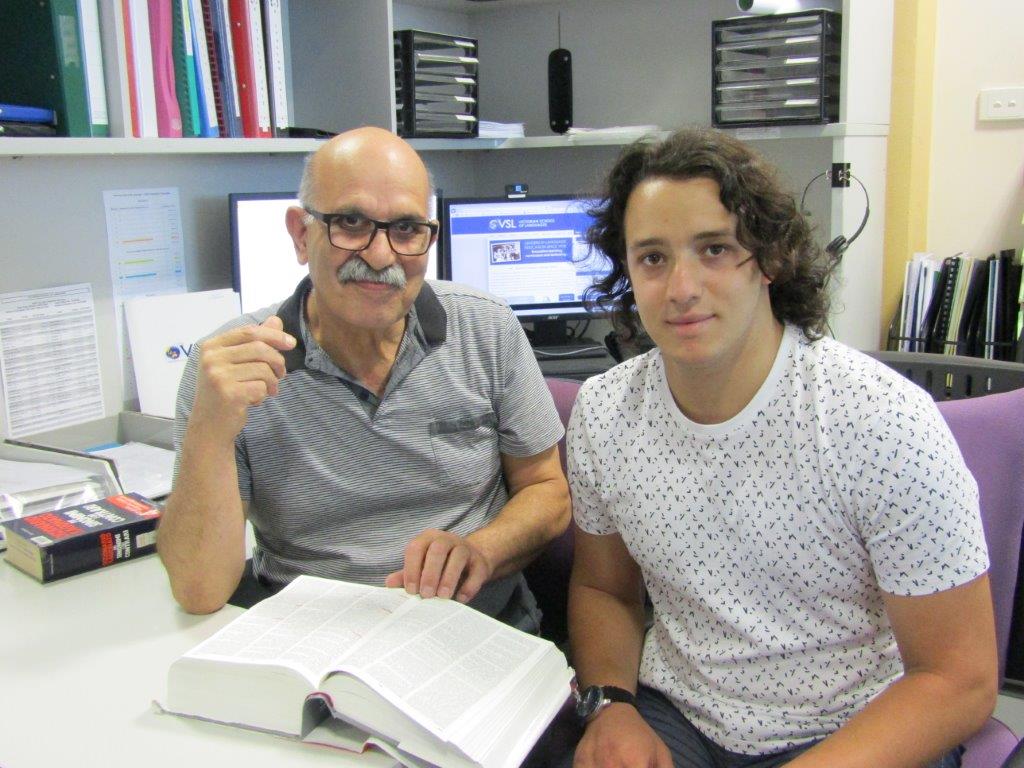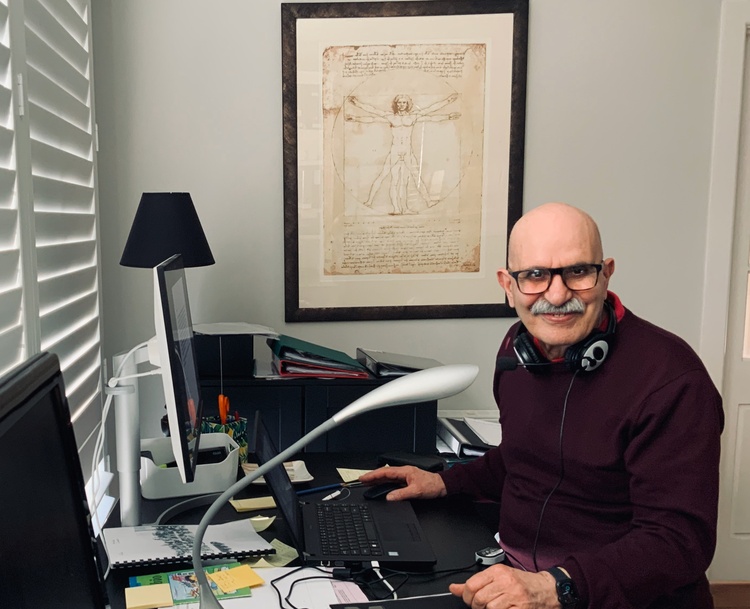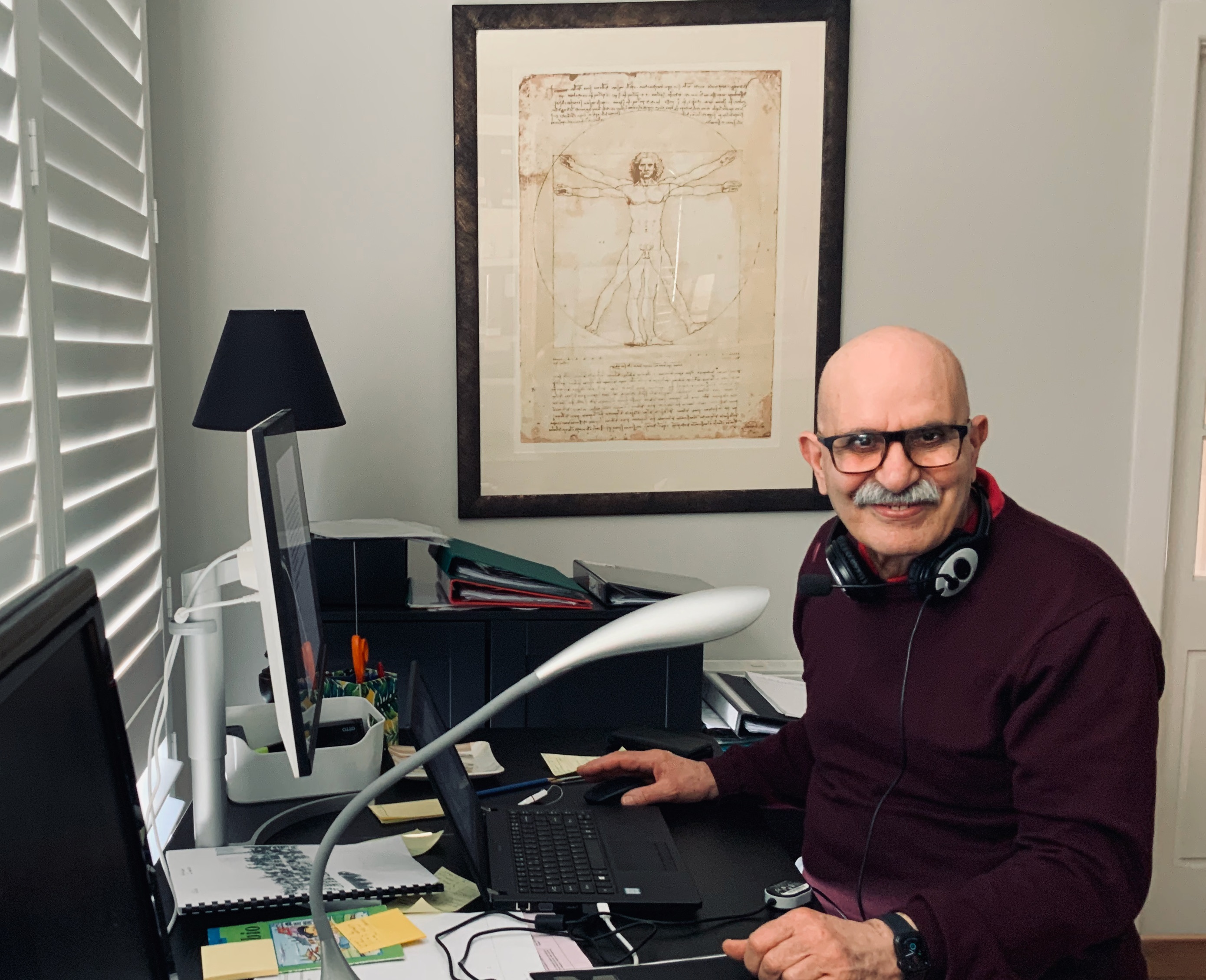When I arrived, I spoke only a handful of words in Italian and nobody in the tiny town of San Michele di Ganzaria could piece together a full sentence in English.
I lugged around an English-Italian dictionary for several months, relying on it to communicate with my host family, villagers, and teachers and students at my new school in nearby Piazza Armerina.
After a year of full immersion in both the language and culture, I returned to Australia with a new view of the world and speaking Italian fluently.
I was determined to maintain my bilingualism, only there was one problem: my secondary school in the rural Victorian town of Kyneton did not offer Italian studies as a subject.
Up until that point, I had never heard of the Victorian School of Languages (VSL), but it would soon become my saving grace.
If I hadn’t been able to study Italian by distance education at VSL, I would never have pursued my language learning at university and be writing this article.
VSL is a government school dedicated to the provision of language programs for Victorian students who do not have access to the study of those languages in their mainstream schools.
Established in 1935, the school initially ran Saturday classes at MacRobertson Girls’ High School and offered two languages: Japanese and Italian.
The Saturday School of Modern Languages, as it was known earlier, was integral to Victoria’s increasingly multicultural society and it progressively expanded in response to the state’s language needs in both metropolitan and regional areas.
Almost 90 years since its foundation, the school offers over 50 languages around Victoria to 15,000 students in face-to-face classes and 1500 students in distance education.
The face-to-face classes are available to students from Prep to Year 12 in over 40 campuses across Victoria; they are held during after-school hours, mainly on Saturday mornings.
Meanwhile, the distance education courses are offered predominately to secondary students in 14 languages.
The school is the largest single VCE language provider, with over 3500 VCE students each year.
For many languages of low candidature, it is students’ only option to continue their studies through to VCE.
Italian is offered face to face at the campuses in Brunswick, Box Hill, Carwatha, Matthew Flinders, Mentone and Wodonga, as well as through distance education from the school’s head office in Thornbury.
My former teacher, Enzo Calati, has taught Italian through VSL’s distance education program since 2008.
However, his journey with the school began in a much earlier chapter of his inspirational life story.
Born on the southern Italian island of Sardinia and raised in the Apulian city of Taranto, Calati migrated to Australia with his family in 1960, at the age of 15.
The eldest of five children, a young Calati was forced to sacrifice his education in order to work and help his father support the family.
He began working as a screenprinter for a fellow Italian migrant, from Piedmont, and eventually started his own business.
While Calati never attended mainstream school in Australia, he jumped at the chance to study English and other subjects after work at night school.
“I’ve always had an inquisitive mind and an eagerness to learn,” he said.
“That has actually pushed me to find new horizons in terms of education.
“I’m grateful that I can impart that love of learning to my students and teach them that they can overcome adversity in life.”
In the late 1960s, Calati also studied HSC Italian at VSL.
“I had nothing else to do on Saturday mornings, so I thought, ‘Why not?’,” he laughed.
Perhaps this was when Calati’s fate was sealed, as he had maintained his Italian since arriving in Australia and often assisted the teacher and encouraged his peers during classes.
But he had one more obstacle to face before he could start working in the classroom: he had to gain a university qualification.
In 1977, with the support of his wife, Francesca, Calati enrolled as a mature-age student at La Trobe University, where he studied Italian, Spanish and art history.
“My university years were very challenging because I didn’t have the structure and prior knowledge that you gain from going through high school,” he explained.
Calati graduated at the age of 37 and worked for one year as an emergency teacher before becoming the Italian teacher at Red Cliffs Secondary College, in Mildura, in 1983.
He worked at the school for five years, running Italian evenings, poetry competitions and Saturday morning classes for younger students.
“I was a faculty of one and I could apply my own teaching philosophy, which I found both challenging and rewarding,” he said.
“Italian was a real novelty for the town; it was new and different and they were eager to learn.”
Calati then returned to Melbourne for family reasons and began working at Reservoir High School, where he taught Italian for 15 years.
After a brief break from teaching, he then worked at Melbourne Girls Grammar for five years.
Upon his return to Melbourne in 1988, Calati also began teaching Italian in VSL’s Saturday classes – a role which he upheld for 20 years.
When a full-time position opened for an Italian teacher within the school’s distance education program in 2008, there was no better person for the job.
Since taking on the role, Calati has taught students from Years 7 to 12 and introduced initiatives such as cultural trips to Italy in 2015 and 2018, and an annual awards day for distance education students, which ran for 10 years before being interrupted by the COVID-19 pandemic.
It is no surprise that with passionate teachers such as Calati facilitating their learning, Italian students at VSL often fare well in VCE, with the school boasting top scores and featuring prominently on the High Achievers and Premier’s Awards lists each year.
For distance education students, their success relies heavily on their motivation and the support of their teachers, albeit from far away.
Where once students completed their coursework and sent it back to their teachers in the post, the program has now shifted online.
Students complete the weekly coursework in their own time and have a fortnightly 15-minute phone call or video conference with their teacher to practise their speaking skills.
“This one-on-one time is gold for students,” Calati said.
Assessments are completed online, under the supervision of a teacher at students’ mainstream schools (or a parent during remote learning).
“The downside of distance education is that if you’re not organised or disciplined, it’s tough,” Calati said.
“But the upside is that students take more control of their learning and have more responsibility.
“I always say to them, I may not be next to you but I’m right there, just a phone call or message away.”

Enzo Calati (left) with VCE Italian student Esdra Sicari, in 2017
Prior to the COVID-19 pandemic, the school also ran intensive day-long seminars for VCE Italian students in Carlton three times a year.
“I’ve always believed that students need to be challenged,” Calati said.
“I like to nurture them to find the answers and solve problems for themselves.
“Some students finish school and drop out of university because it’s too challenging; it’s not their fault because often they haven’t been supported in learning how to learn.”
After almost four decades of teaching, Calati is as charismatic and enthusiastic as ever, engaging his students and inspiring them to continue their language studies.
“I like to teach with a bit of zest,” he said.
“I always tell students to never underestimate their ability.
“Studying another language and being bilingual is an achievement and we let students know that.
“No matter what the result is, it’s the learning experience that will stay with them.
“Once they reach their VCE final exams, the job has already been done.”
Over the years, Calati and his colleagues have worked tirelessly to promote language learning in Victoria.
“When languages were made compulsory in schools, there was this negative attitude that learning a language had no value,” he concluded.
“But they missed an important point: languages open your windows to the world and broaden your horizons.
“That’s the philosophy we’re trying to implement.”
As living proof of this very sentiment, I will forever be grateful to Enzo Calati and VSL.












